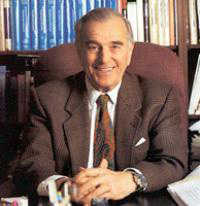

The Department of Physiology provides graduate training in physiology and provides students with an understanding of the structure and function of the cells and organ systems of the body and the means by which these functions are regulated. Emphasis is placed on the acquisition of a sound basic training in general physiology through individually planned programs of course work, tutorials, seminars and supervised research. Instruction leading to the degree of Doctor of Philosophy or Master of Science is available in the following specialized areas: cellular neurophysiology, regulation of sleep and wakefulness, neural, endocrine and local control of the circulation and microcirculation, cardiac dynamics, cardiac metabolism, cardiac hypertrophy and failure, endocrinology, neuroendocrinology, renal physiology, oxygen metabolism, and the physiology of biological membranes.
Graduates with a degree in physiology can pursue careers in research, teaching or management in academia, the pharmaceutical and biotechnology industries, private research institutions, government science or regulatory agencies, or medicine and health care.
Further information on admissions and degree requirements, course offerings and research interests are available upon request from the Graduate Program Director.
Academic Programs in Physiology
The Department offers the Ph.D. and M.S. degrees.
Christopher S. Leonard, Ph.D.
Professor and Interim Chair
Basic Sciences Building, Room 611
(914) 594-3123
Gabor Kaley, Ph.D., served on the NYMC faculty for 43 years. A member of the faculty since 1964, he helped establish GSBMS, and became chairman of the Department of Physiology in 1970. Until he stepped down from that post in 2007, he had the distinction of being the longest-sitting chair of physiology in the nation.
member of the faculty since 1964, he helped establish GSBMS, and became chairman of the Department of Physiology in 1970. Until he stepped down from that post in 2007, he had the distinction of being the longest-sitting chair of physiology in the nation.
Born in Budapest, Hungary, Gabor Kaley first studied medicine, but when war intervened, he was sent to a labor camp in Yugoslavia where only 600 of the 6,000 inmates survived, After the war, he boarded a ship for America where he worked as a busboy, cab driver and singing waiter to pay for his studies. After receiving a B.S. in biology at Columbia University, he was drafted into the U.S. Army during the Korean War, and later used the GI Bill to earn an M.S. in physiology from New York University and a Ph.D. in experimental pathology.
During his career, Dr. Kaley wrote more than 150 articles, edited an authoritative three-volume edition of Microcirculation, gave invited lectures around the world, and served on the editorial boards of numerous scientific journals. A member of the Hungarian Academy of Sciences, he was awarded the Semmelweis Medal in 1982 for his work in microcirculation. In 2001 he received the Wiggers Memorial Award, which recognizes outstanding and lasting contributions to cardiovascular research. He received the Eugene M. Landis Award from the Microcirculatory Society in 1994 and was named the George E. Brown Memorial Lecturer by the Council on Circulation of the American Heart Association in 1998. In 2005, he was named an Eminent Physiology by the American Physiological Society. The honor resulted in a videotaped interview with Dr. Kaley about his life, achievements, and vision of the future of physiology, a record that is now housed in the society’s historical archives. The American Physiological Society (APS) in conjunction with the Microcirculatory Society honors the memory of Dr. Kaley by awarding the Cardiovascular Section Gabor Kaley Memorial Lectureship Award which recognizes an outstanding contributor to the field of microcirculatory physiology/pathophysiology, who is noted for the quality of his/her research and who has demonstrated commitment to the development and training of junior scientists. The APS also awards the Gabor Kaley Professional Opportunity Award in Dr. Kaley's memory.
In addition to the scientific legacy he left behind, Dr. Kaley’s widow, Dr. Harriette Kaley, and their son David Kaley are continuing to support the development of cutting-edge science at New York Medical College by establishing the Drs. Gabor and Harriette Kaley Endowed Lectureship in the Department of Physiology. They have also funded a research effort in the department designed to study the role of microcirculation in Alzheimer’s disease.